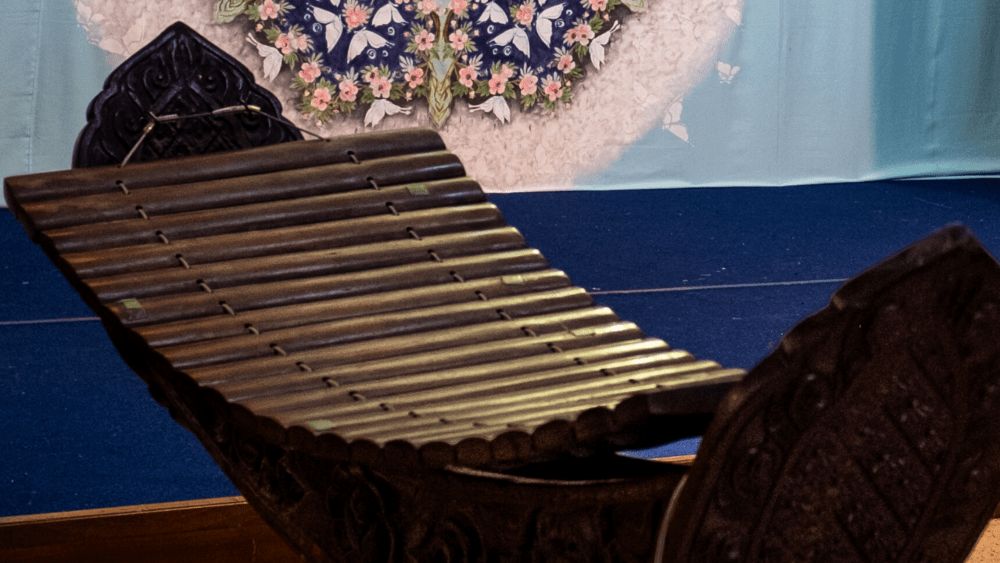by Brad Coon, Associate Director for Development + Research
Frontier Fellowship’s staff, along with a board member and some family members, traveled to Thailand and Myanmar in January to discover together how the Good News of Jesus is being made known to people groups in this part of the Buddhist world. Here, Associate Director for Development + Research Brad Coon shares how the Gospel is being shared through a ministry of music and dance.
During our travels to Thailand in January, the Frontier Fellowship team heard the ranet ek (pictured above) played on several occasions as we immersed ourselves in Thai culture. The ranet ek is a wooden xylophone used in traditional Thai music ensembles, often to accompany traditional dance or theatre. It is also frequently used in the performance of sacred music.
Perhaps our most notable encounter with the sounds of the ranet ek took place at the Christian Communications Institute (CCI) of Payap University. There we watched CCI performers retell Biblical and redemptive stories through the beautiful movements and colorful costumes of the traditional Thai likay dance form, all accompanied by the unique tones of the ranet ek.
CCI was founded in 1980 and each year their performers are invited into villages and schools throughout Thailand to share their artistry. Through modern and traditional music and dance, they tell the story of Jesus and teach lessons of discipleship, sometimes as the first people to carry the Good News into communities in a form that is culturally familiar. Thousands have responded to the message told in this way—a beautiful example of the Good News shared by Thai believers in a contextualized way.
While Thai society eagerly accepted CCI’s artistic method of presenting the Gospel, the specific use of the ranet ek was less welcomed by Thai Christians. The instrument’s association with the sacred music in Buddhist and Animistic culture left many cautious about its use in Christian contexts. Though CCI used the instrument as a means of worshiping the Living God, the potential for misunderstanding among new believers or outsiders was significant. It took fifteen years of careful education and discipleship for the ranet ek to be accepted by Thai Christians as an instrument appropriate for worship in the local church.
The example of Thai dance and the ranet ek are pictures of the wonderful and complex ways the Gospel has grown and become contextualized in aspects of Thai culture. The process and timing were different, but in both cases the seed of the Gospel grew in the hearts of believers and became expressed in acts of worship through local forms, even redeeming the use of an instrument that was once used to worship other things.
This was just one of the powerful ways the Frontier Fellowship team experienced the love of Christ being made manifest in Thailand. We invite you to pray with us for the Thai Church, who represent just over 1% of the country’s population. Pray that the Good News continues to grow through the lives and presence of Thai believers.
Read more about Frontier Fellowship’s vision trip to Southeast Asia in the spring issue of The Frontier Journal.


Comments are closed.